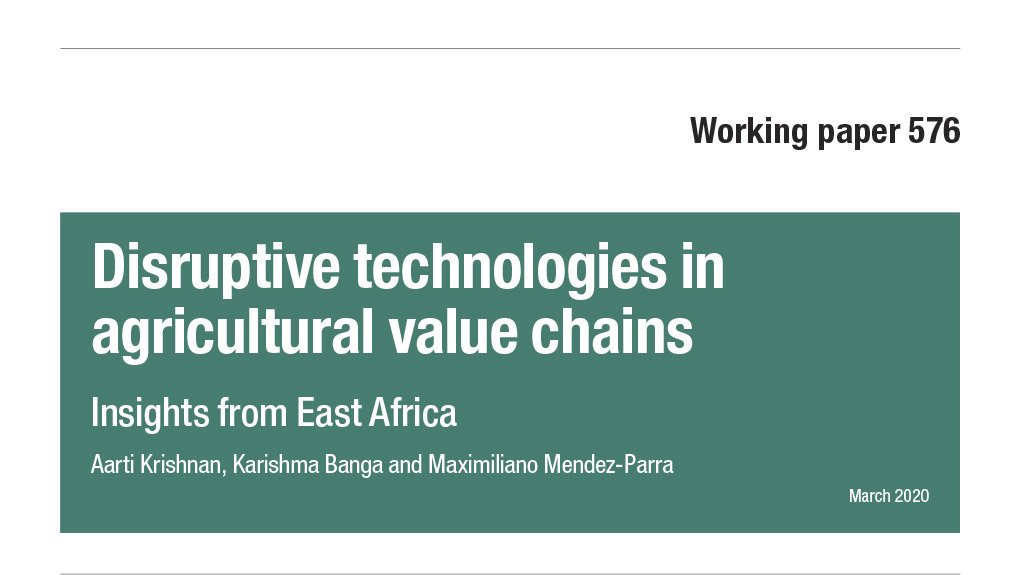Global food demand is expected to increase by somewhere between 59% and 98% by 2050 as the world population reaches an estimated 9.7 billion. Food production is especially critical in Africa, where over 70% of the population rely on agriculture for their livelihoods.
Against a backdrop of the rapid dwindling of agricultural productivity, the exclusion of women from the work force and the threat of climate change, an increase in the use of agricultural technologies – AgriTech – could help reduce livelihood loss and support inclusive economic transformation.
Against a backdrop of the rapid dwindling of agricultural productivity, the exclusion of women from the work force and the threat of climate change, an increase in the use of agricultural technologies – AgriTech – could help reduce livelihood loss and support inclusive economic transformation.
This working paper (56 pages) explores the implications of the digitalisation of agriculture, with a focus on East Africa. It addresses the following key questions:
- What is AgriTech?
- What prevents adoption of AgriTech?
- What does disruption mean within AgriTech?
- What are the pathways through which AgriTech may disrupt livelihoods and support transformation?


No comments:
Post a Comment